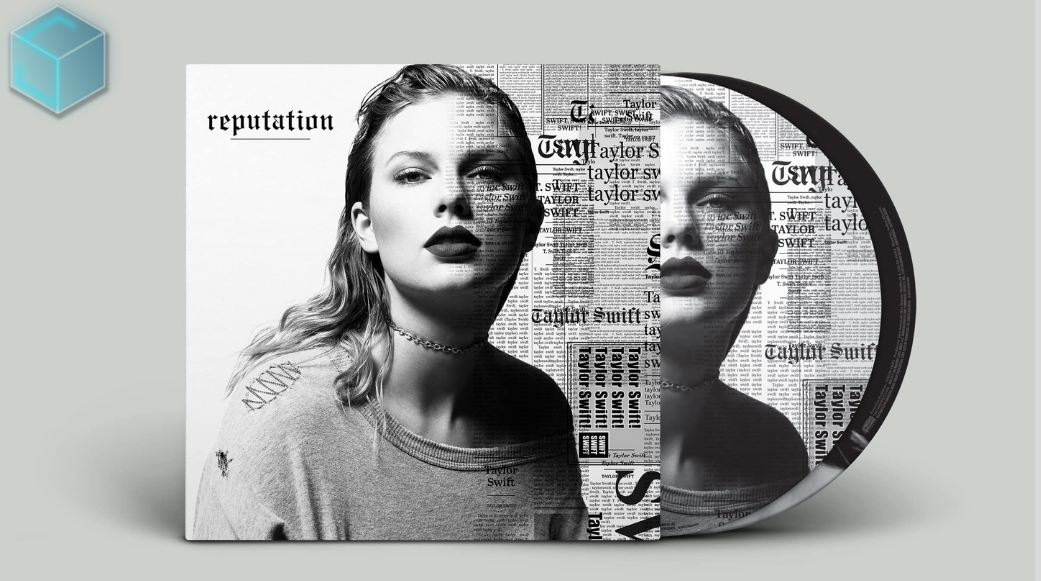
August 15, 2025
The music industry collectively lost its composure when Taylor Swift announced her twelfth studio album The Life of a Showgirl, with everyone from Sabrina Carpenter to Caitlin Clark publicly...
Read more
August 15, 2025
One of the most talked-about musical moments of the summer is JoJo Siwa's recent rendition of the 1981 classic "Bette Davis Eyes." On July 11, she shared her retro-style rendition, sparking intense...
Read more
August 15, 2025
Chappell Roan is keeping fans guessing about her sophomore album, admitting she has "no idea" what direction her new music will take. In a revealing interview with Apple Music 1's Zane Lowe, the...
Read more
August 15, 2025
In a candid new interview with GQ, Kansas City Chiefs tight end Travis Kelce is pulling back the curtain on his relationship with pop superstar Taylor Swift. The NFL star revealed intimate details...
Read more
August 15, 2025
At exactly 12:12 a.m. Tuesday, Taylor Swift revealed her 12th studio album, The Life of a Showgirl, via her official website. The announcement came as a countdown timer hit zero, setting off a wave...
Read more
August 15, 2025
Taylor Swift fans are buzzing after longtime collaborator Joseph Kahn revealed that the singer filmed — but never released — a music video for her Reputation track “King of My Heart” nearly a...
Read more
August 15, 2025
As his son Jack Blues approaches his first birthday on August 22, Justin Bieber is giving fans heartfelt glimpses into his life as a doting father. The 31-year-old superstar took to Instagram...
Read more
August 11, 2025
From August 1–3, Parc Jean-Drapeau wasn’t just a park, it was the main character. Osheaga 2025 rolled in with enough vibes to power your entire summer playlist, turning the city into a three-day...
Read more
August 11, 2025
In the ever-shifting world of K-pop, new groups arrive every year, but when BigHit Music announces a debut, the industry listens. Just days before BTS gears up for their long-awaited comeback, the...
Read more
August 11, 2025
When ILLIT dropped “Billyeoon Goyangi,” they probably didn’t expect to turn TikTok into one giant dance floor, but here we are, thousands of creators spinning, twirling, and body-rolling like their...
Read more
August 11, 2025
In a year where streaming milestones are harder to hit than that high note in ANTIFRAGILE, LE SSERAFIM has officially crossed 1 billion Spotify streams in 2025. The self-proclaimed fearless queens...
Read more
August 11, 2025
Imagine dropping your debut single and poof, you're suddenly everywhere. That’s exactly how ILLIT entered the scene with “Magnetic.” This banger didn’t just drop; it detonated, sending viral...
Read more.png)
Photo Source: Spotify
Spotify's upcoming overhaul of its royalties model marks a significant shift in the way the streaming giant compensates artists, aiming to funnel more earnings towards more popular artists, labels, and distributors while taking a firm stance against streaming fraud. This new model, detailed by Billboard, incorporates several key changes that could significantly impact the music industry landscape.
Under the new system, tracks need to surpass a streaming threshold of 1,000 plays within a 12-month period to qualify for royalties. This move is designed to ensure that only tracks that achieve a minimal level of listener engagement contribute to and benefit from the royalty pool. Spotify's intention here is to redistribute royalties from less popular tracks to those that meet this threshold, potentially increasing earnings for artists and labels whose music consistently attracts listeners.
Spotify will introduce penalties for fraudulent streaming activity, charging labels and distributors 10 euros for each track that has 90% or more of its streams identified as fraudulent. This measure targets the manipulation of streaming numbers, a practice that undermines the fairness and integrity of royalty distribution. By imposing financial penalties, Spotify aims to deter fraudulent activities and ensure a more equitable distribution of royalties.
The platform is also setting a minimum play-time length for non-music noise tracks to qualify for royalties. These tracks must now be at least two minutes long, and each play will count as one-fifth of a music track's stream. This adjustment addresses the issue of short, non-musical tracks being used to game the system, ensuring that royalties are more accurately allocated to musical content that meets a standard of listener engagement.
The new model is expected to affect more than two-thirds of Spotify's song catalog, primarily due to the vast amount of music uploaded that fails to attract significant listening. However, the redistribution of royalties is anticipated to shift only about 0.5% of Spotify's royalty pool towards more popular tracks. While this might seem minor, it represents a substantial amount in terms of actual dollars, potentially increasing earnings for artists and labels with higher streaming numbers.
The music industry has largely welcomed these changes, recognizing the potential to curb streaming fraud and more fairly compensate artists and rights holders. However, concerns have been raised, especially within the independent distribution sector, about the potential for the anti-fraud measures to disproportionately affect small-scale distributors. These entities, often operating with thin margins and charging per upload, may find it challenging to monitor and prevent fraudulent streaming activities among their clients.
Philip Kaplan, founder of DistroKid, has publicly objected to the penalty system, highlighting the difficulty in predicting whether a new client will engage in stream manipulation. This underscores the broader industry challenge of balancing the need to combat fraud with the risk of inadvertently penalizing legitimate distributors and artists.
As Spotify prepares to implement these changes in early 2024, the music community watches closely. While songwriters are not affected by the current iteration of the model, the evolving nature of streaming royalties suggests that ongoing adjustments may be necessary to address emerging challenges and ensure fair compensation for all music creators.
In summary, Spotify's new royalties model represents a thoughtful attempt to refine how streaming revenue is distributed, prioritizing engagement and authenticity over sheer volume. However, its true impact will depend on the effectiveness of its implementation and the industry's ability to adapt to these changes.